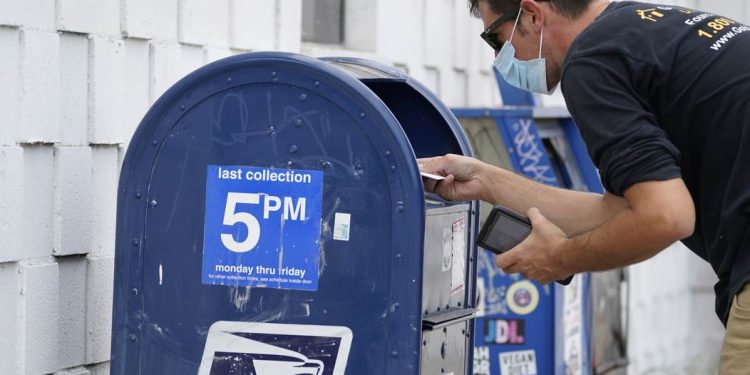For quite a while now, the Postal Service has been complaining that their funding needs to be increased if they are to maintain their traditional delivery schedules and other services. Congress has rebuffed those efforts thus far, but now the USPS has hatched another approach to the problem. They are launching a series of Regional Processing Centers which would serve as “mega-centers” where larger volumes of mail – particularly bulk mail – would be processed more rapidly and efficiently. But the processing centers would be operated almost entirely in densely populated urban centers. So what becomes of the mail flowing through more rural and suburban areas? It would sit overnight at regional post offices awaiting processing the following day. In other words, those mail deliveries would be intentionally slowed down while bulk mail traveling to cities would be handled at the normal speed and volume. Needless to say, not everyone is happy with this plan. (Government Executive)
The U.S. Postal Service is moving forward with a plan to slow down delivery for a relatively small portion of mail, telling its regulator the changes would save nearly $4 billion annually and better reflect the evolving nature of mail usage.
USPS has requested an advisory opinion from the Postal Regulatory Commission on its Regional Transportation Optimization plan, which requires mail to sit overnight at post offices instead of being collected each evening for transportation to a processing center. The mailing agency has been rolling out the changes on a limited basis and now, despite mixed results and significant pushback, it is looking to implement the plan on a national level.
Only some facilities will be impacted by the reforms, namely those more than 50 miles from the Postal Service’s new Regional Processing and Distribution Centers. USPS plans to stand up about 60 of those mega-centers, most of which will be located in urban areas. That has led to criticism that postal management’s mail slowdown will disproportionately impact rural communities.
The current Postmaster General claims that the current system, where mail is picked up twice per day at each post office is based on “a bygone era of significant single-piece letter mail volumes.” That may be the case, but these changes would still shoot a significant hole in the traditional USPS delivery system. Pilot programs have already launched in several areas and the suburbs of Richmond, Virginia, and Atlanta both reported significant spikes in delivery times. […]
— Read More: hotair.com




